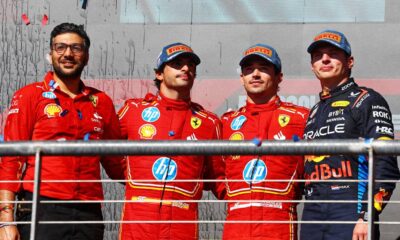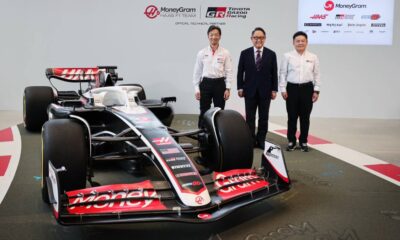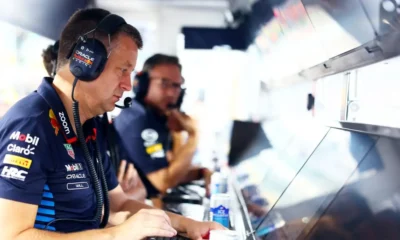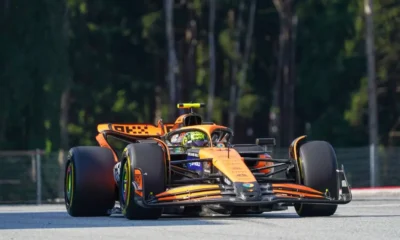Motorsport
Mercedes and Petronas have entered into a new agreement! It will affect not only F1, but also road and air transport. What is Petronas up to?
A new agreement, a key partnership. Mercedes-AMG Petronas F1 has entered into a new agreement with the petrochemical company Petronas, but this will not take effect for four years. However, the two players have set themselves several targets that are not only intended to have an impact on Formula 1, but also on road or other modes of transport…
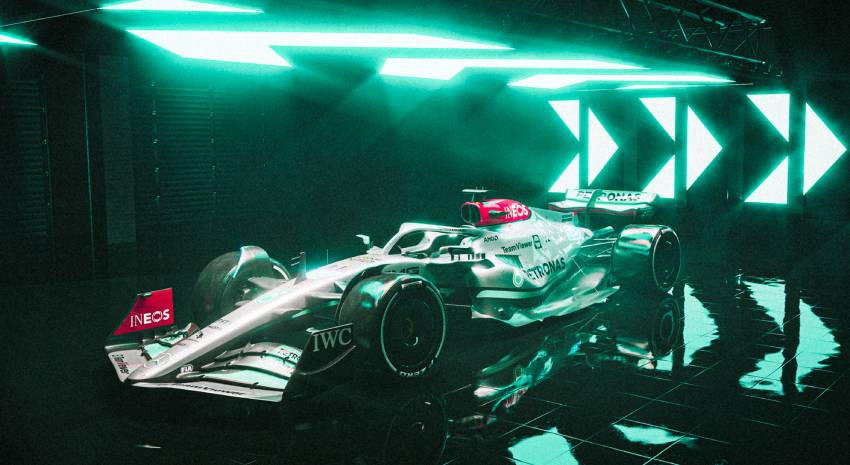
A new agreement, a key partnership. Mercedes-AMG Petronas F1 has entered into a new agreement with the petrochemical company Petronas, but this will not take effect for four years. However, the two players have set themselves several targets that are not only intended to have an impact on Formula 1, but also on road or other modes of transport…
Malaysia’s Petronas has been a partner and title sponsor of Mercedes since its return to Formula One in 2010. However, the current agreement between the German team and the oil and gas company runs until 2025.
However, Mercedes-AMG Petronas F1 announced the formation of a new agreement today, 28 September. This is to be multi-year and will start in 2026, and this date is certainly no coincidence.
That’s because from the 2026 season, the new powertrain rules will come into force, with one of the biggest changes being the switch to 100% carbon neutral fuel.
The extension of this partnership is therefore also proof that Mercedes and Petronas are making a push towards a carbon neutral future for the team. And in addition to Formula 1’s transition to sustainable fuel, the Brackley-based team has set a “net zero target” for 2030.
Petronas was also one of the first to invest in aviation sustainable fuel. Mercedes can also boast that they logistically managed the recent triple-header (three consecutive Grand Prix – ed.) in Belgium, the Netherlands and Italy using biofuel.
Mercedes, in collaboration with Petronas, put this fuel in their trucks and the results were impressive. In fact, the team revealed that switching to biofuel in its trucks reduced carbon emissions by 89 percent in three weeks.
Mercedes statement
“Over the course of nearly 13 seasons to date, we have collectively won eight Constructors’ Cups and scored 115 grand prix victories – an achievement that is unparalleled in F1. And this success has been supported and made possible by continuous technical innovation,” Mercedes said in a statement.
“Today we are doing something a little unusual – announcing a partnership that will begin in four years’ time. This sends an important message that our team and PETRONAS are no longer just partners, we are a family and will be one team for many years to come,” said team boss Toto Wolff.
Sustainable fuels also for road, air and sea transport
Petronas then believes it can develop a competitive and fully sustainable fuel for Mercedes’ monoposts, with the petrochemical company exploring another option to reduce carbon emissions in the coming years.
In addition, Petronas is planning a biorefinery to develop fuels not only for Formula 1 but also for ordinary road vehicles. At the same time, they are looking to produce sustainable jet fuel that will help reduce the carbon footprint of their aviation by 50%.
This biorefinery would then produce hydrogenated vegetable oil for road vehicles, trains or marine transport.
Finally…
Whether we like it or not, motorsport has been setting trends in the automotive industry for decades. The reason is quite simple. Whether it’s Formula 1, the WRC or other racing series, it’s the motorsport environment that has always been technologically ahead of the curve, employing some of the brightest minds on the planet.
Recently, for example, the Alpine F1 team has come forward with the news that they will be exploring another type of powertrain – hydrogen powered.
Why? Because it’s unlikely that batteries and electric motors will be powerful enough to power Formula 1 cars at their current performance level by 2031. The second level is that, although most car companies present it as the best alternative, the current production of electric cars and their components has little to do with ecology.
And Mercedes’ partnership with Petronas is just further proof of how technological developments in motorsport can be translated for road or other modes of transport. After all, with strong environmental pressures, the technological side of motorsport is now more important than ever.
F1, Motorsport, Racing News 365





